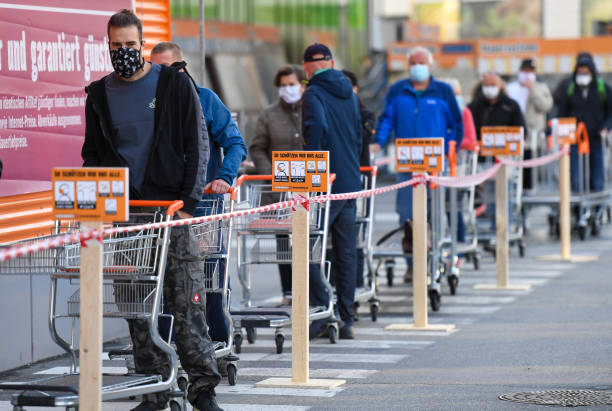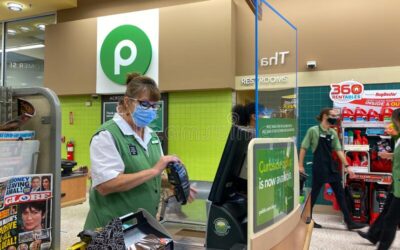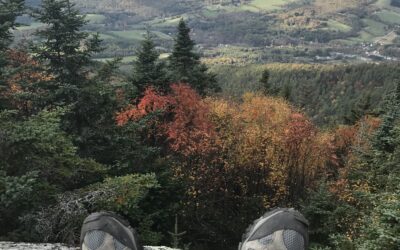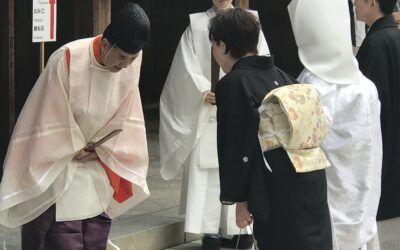I stood fourth in a line of hopeful shoppers armed with newly disinfected shopping carts, holding tightly to paper lists of needed items, and concealed behind an array of colorful homemade masks. Some wore goggles;
almost all wore glasses. Mine fogged slightly as warm breath escaped through the gaps on either side of my nose. We had respectfully distanced ourselves from the person just ahead in line and stood silently waiting to be admitted.
I had arisen that morning far earlier than my normal self-isolation schedule with the nervous expectation that would normally accompany a morning departure for a long trip. I had made lists for myself and my husband, organized by the order of the aisles in the store, assigning to each of us items of interest or passion: peanut butter and Dalfour jams for Joe; humus and Mary’s Gone Crackers for me. An inventory conducted the night before made sure that only those necessities that threatened to run out would be included. The goal was to not have to visit another grocery store for a minimum of two weeks. The level of planning and organization were extreme and not characteristic of my usual modus operandi. (Just ask any of the courageous women who have had the dubious pleasure of serving as my secretary)! But this was war. The enemy was the coronavirus, and securing reinforcements for the siege meant life itself.
At the stroke of eight, the Coop doors opened and we filed into the store. The line quickly melted away as we all dispersed in different directions, each heading with determination in the direction that our lists had targeted. I scanned the shelves of my assigned aisles, peeking over the fabric in my mask. The sense of the surreal followed me through the store as each shelf had familiar items in spots, bare stretches in others, and unfamiliar choices replacing some usual brands. We shoppers wheeled our cars silently, avoiding eye contact but for the briefest moments. Those moments of human contact were precious; detecting smiling eyes over the barriers of fabric and plexiglass reminded me that behind each outfit of personal protective equipment (PPEs as we have learned to call those items) resided an actual person.
There is much discussion on the news about the heroes of this national catastrophe. After 9/11, it was the police who first responded to the calls. It was the firemen who rushed into the burning towers to rescue every single soul that worked below the level of the plane strikes. So many of those lost their own lives. This time, it is the health care workers and grocery clerks who earn the title of hero. I have heard of the shortages of protective equipment for doctors and nurses in New York City and the numbers of them that are falling victim to this scourge. But while we praise those stocking the grocery shelves and ringing us up at the register, I noticed that none of them wore gloves, nor masks, nor eye protection. I do not know the length of their shifts, their level of compensation, or arrangements for their healthcare. But I worried for them and it struck me that I had a level of privilege that I hadn’t considered before.
I have the privilege of self-isolation. I have a home where I can safely become ensconced for the duration. I have internet access to stay connected to friends and family. I have retirement income from the state and federal government that will sustain me regardless of market forces. I have a life partner with whom to share the burden of fear and uncertainty. I have a car filled with gas, a pantry filled with food, and a healthcare plan. The workers who today cheerfully helped us fill, find, and pay for our selections are exposing themselves to unknown dangers so that the rest of us can eat. How much longer can they afford to do so? And what will happen to all of us when they no longer can?






0 Comments